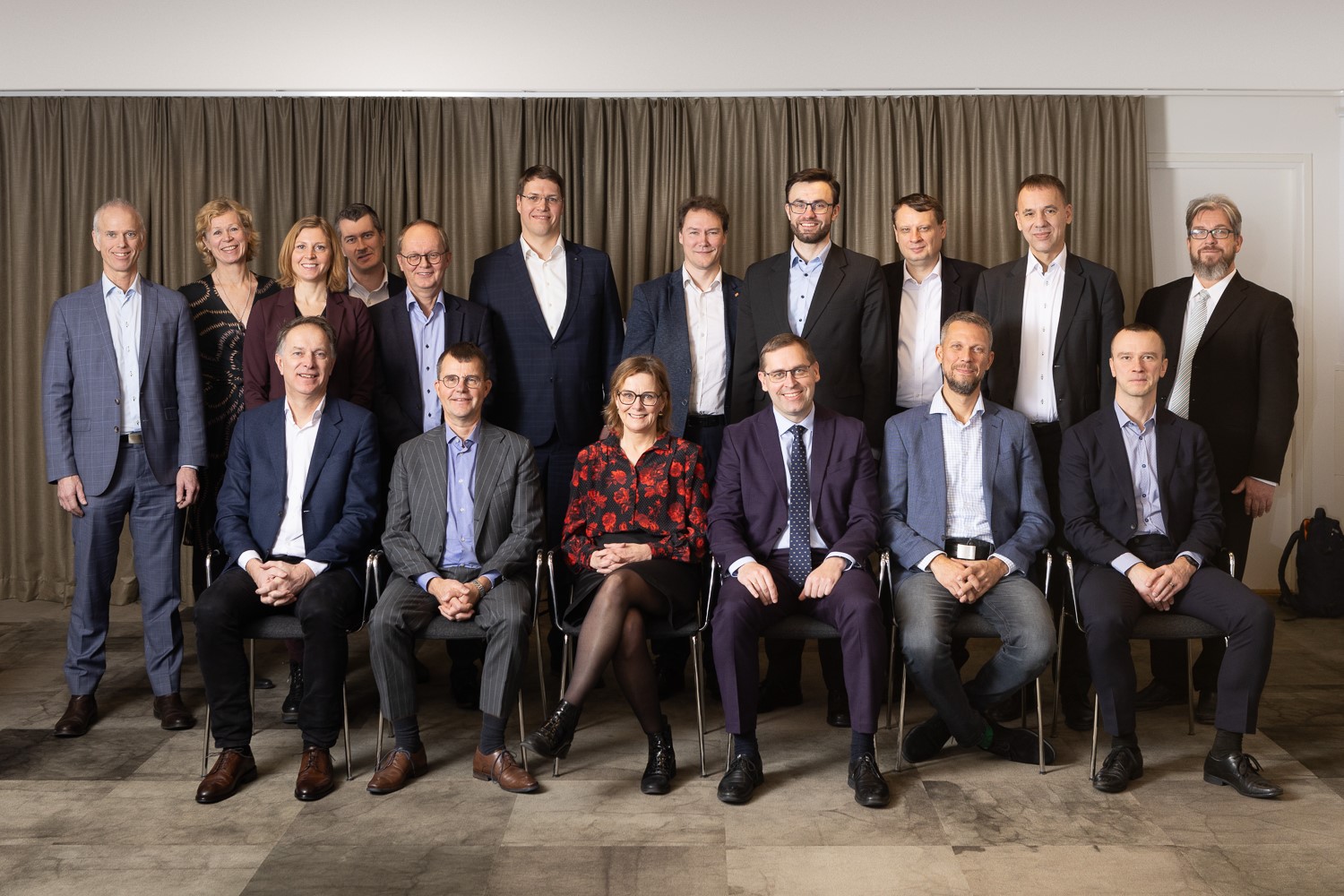Electricity transmission system operators of Baltic Sea region will strengthen cooperation to ensure the electricity supply reliability and the development of the future energy system
The electricity transmission system operators (TSOs) of the Baltic Sea region will continue to actively cooperate to ensure the reliability of the region's electricity supply, the implementation of the synchronization project of Baltic States' electricity grids with continental Europe and to develop the future energy system for the use of large-scale offshore wind energy. This decision was made during the meeting of TSO leaders of the Baltic Sea region countries on December 8th in Stockholm by Latvia's "Augstsprieguma tīkls", Lithuania's "Litgrid", Estonia's "Elering", Denmark's "Energinet", Finland's "Fingrid", Sweden's "Svenska kraftnät", Norway's "Statnett", Managers of Polish "PSE" and German "50Hertz".
"The reliability of energy supply and the development of the energy system in the Baltic Sea region is a joint responsibility of all operators of the electricity transmission systems in the region. I am pleased that during the annual meeting of TSO managers, we strengthened our successful cooperation. There is an active exchange of information established on the energy supply situation and the implementation of the final phase of the Baltic power grid synchronization project with Continental Europe, as well as joint work on developing the region's energy system for the use of large-scale offshore wind energy. At the same time, the operators are committed to continuing solving the region's challenges together," said Rolands Irklis, Chairman of the Board of JSC "Augstsprieguma tīkls".
This winter in Europe, the power supply capacities will be sufficient for electricity consumption and the risks of capacity shortages are visible only in some of the more remote places isolated from the common power grid - in Ireland, Malta, and Cyprus. The countries of the Baltic Sea region also have confidence in the security of energy supply in the year's cold season, according to the Winter Outlook 2023-2024 report of the European Electricity Transmission Operators Association ENTSO-E. Although the availability of natural gas for power stations has been ensured this winter, several alternative natural gas supply routes have been created in the region and the damage to the gas pipeline between Estonia and Finland does not have a critical impact on the security of energy supply. The Baltic market has fully adapted and operates without electricity imports from Russia, but the risks of damage to critical infrastructure remain. That is why Latvian, Lithuanian, and Estonian TSOs continue to continuously monitor the energy system and maintain action plans in operational readiness, as well as all TSOs of the Baltic Sea region countries are committed to helping each other in case of need.
At the same time, the leaders of TSOs of the region have jointly confirmed their readiness to provide support in the implementation of the most ambitious energy independence project in the Baltics - the complete switchover from the unified Russian energy system to the energy system of continental Europe. Synchronization with the European synchronous area is planned for February 2025. The synchronization project will fundamentally change the Baltic energy system and provide significant long-term benefits, increase the energy independence of the Baltic states, promote integration in the single European electricity market, and provide access to a wide range of electricity suppliers and energy system balancing reserves in highly competitive conditions, which are the basis of energy supply resilience. Synchronization will also ensure the possibility of fully reorganizing the energy system management processes of the Baltic States according to European standards.
Also, TSOs of the region will continue to cooperate to develop a future energy system for the use of large-scale offshore wind energy. The first maritime network development plan of the Baltic Sea basin has been created with the involvement of TSOs, which will be published in January 2024.
Baltic Sea electricity transmission system operators are AST, Elering, Litgrid, Svenska kraftnät, Statnett, Energinet, Fingrid, PSE and 50Hertz.
 First row (from left): Mr Gunnar Løvås - Executive Vice President Markets & System Development at Statnett, Mr. Jukka Ruusunen - President & CEO at Fingrid, Ms. Lotta Medelius-Bredhe - General Director & CEO at Svenska kraftnät, Mr. Rolands Irklis - CEO at AST, Mr. Liutauras Varanavicius - Director of Strategy Department at Litgrid, Mr. Kalle Kilk - Chairman of the Board / Head of Asset Management at Elering.
First row (from left): Mr Gunnar Løvås - Executive Vice President Markets & System Development at Statnett, Mr. Jukka Ruusunen - President & CEO at Fingrid, Ms. Lotta Medelius-Bredhe - General Director & CEO at Svenska kraftnät, Mr. Rolands Irklis - CEO at AST, Mr. Liutauras Varanavicius - Director of Strategy Department at Litgrid, Mr. Kalle Kilk - Chairman of the Board / Head of Asset Management at Elering.
Second row (from left): Mr. Tomas Söderlund - International advisor at Svenska kraftnät, Ms Kristin Munthe - SVP Regulatory Affairs at Statnett, Ms. Martina Högberg - Head of unit Strategy and Foresight at Svenska kraftnät, Mr Mikko Heikkila - Head of Strategic Grid Planning at Fingrid, Mr. Klaus Thostrup - European Affairs Manager at Energinet, Mr. Gatis Junghans - Member of the Management Board at AST, Mr. Arnis Daugulis - Member of the Management Board at AST, Mr. Donatas Matelionis - Director of Power System Operations department at Litgrid, Mr Robert Paprocki - Deputy Director of International Cooperation Department at PSE, Mr. Dirk Biermann - CMO at 50 Hertz, Mr Michael Heit - Convenor ENTSO-E RG Baltic Sea at 50 Hertz/ENTSO-E.
Foto © Tomas Ärlemo
